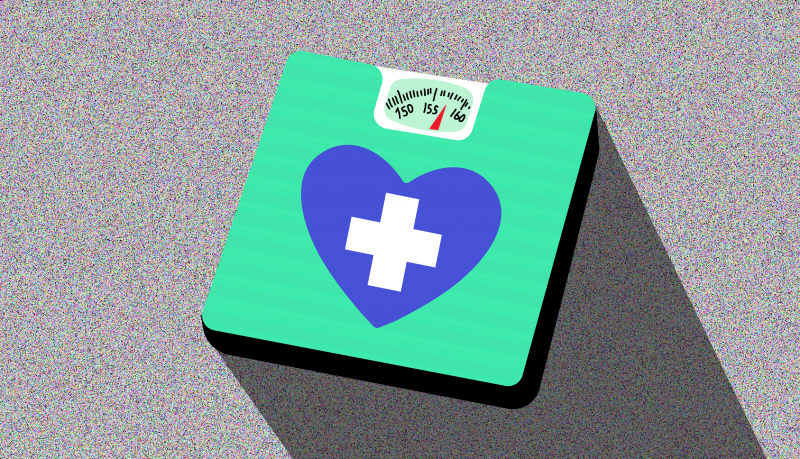For far too long, weight has been used as a health indicator. This inaccurate measurement has irresponsible and widespread repercussions for both physical and mental health.
As our understanding of health and well-being develops, I believe we need to continue to think critically and resist the stigma that bigger bodies do not hold the same value as smaller bodies.
In my opinion, the stigma surrounding weight places healthcare professionals such as dieticians in a difficult position; as research about health care and body image continue to evolve, they are faced with the challenge of misinformation. As experts in this field, they are tasked with redefining wellness, while also dealing with the burden of undoing the incorrect assumptions that exist about weight bias. This in itself could be a full time job.
According to Obesity Canada, weight bias is a negative attitude and view targeted at those who are living in larger bodies. This bias seeps into every crevice of society, distorting our perception of health and beauty. According to ABC news, the stigma on larger bodies creates distain and impatience from society.
“Doctors have shorter appointments with fat patients and show less emotional rapport in the minutes they do have,” said Michael Hobbes in an article for the Huffington Post.
There is an implication that weight is a choice, and thinness equals health. We know that weight loss and health are not that simple. This misconception speaks to a systemic issue of idolizing smaller bodies and dehumanizing those in larger ones.
Bianca Santaromita-Villa, a Dietitian working in Ontario, explains that her job is often misconstrued as “diet police.” Santaromita-Villa says that the goal for her practice, as a health-at-every-size professional, has nothing to do with dieting. She helps support her clients by ensuring they are getting the nutrients they need on an individual basis.
Through her experience, Santaromita-Villa has learned that the topic of body image and weight is emotional for a client. Some health care professionals simply focus on weight when it comes to health advice. Santaromita-Villa explains that this approach reinforces the weight stigma, and evidence shows that it is damaging for a client’s health, psychologically and socially.
Santaromita-Villa uses the example of a patient with knee pain. If a doctor simply tells a patient to lose weight, it frustrates them, and will likely result in them blaming themselves for their situation.
Alternatively, Santaromita-Villa explains, this same patient could have arthritis, which could be unrelated to losing weight, contrary to the doctor’s oversimplification.
Weight is not a health indicator. There are many factors that influence weight, and to project a conclusive health analysis using weight is deceptive and irresponsible. Santaromita-Villa explains, “someone in a larger body could be consuming the exact same thing as someone in a smaller body, doing the same exercises, and they are still going to live in that larger body.”
Moving away from using weight as a measurement of success, one of the strategies Santaromita-Villa uses is to provide the client with “modifiable factors.” These are tangible factors that the client can use to track their progress. For example, they could measure their simple sugar intake using the amount of pop they drink, and track their consumption over a two month period.
She explains that these “modifiable factors” allow the client to measure their progress with elements that they can control. “Weight can go where it wants to go, sometimes it’s in our control, sometimes it’s not.”
For every weight loss ad, juice cleanse, and photoshopped beauty magazine, there’s a healthcare expert trying their best to push an agenda of healthy and sustainable living, by removing the element of weight. Santaromita-Villa says that the shift toward a healthier concept of wellness starts with small changes and informing ourselves on how these misconceptions are dangerous not only to our bodies, but our self worth as well.
Graphic by @sundaeghost




